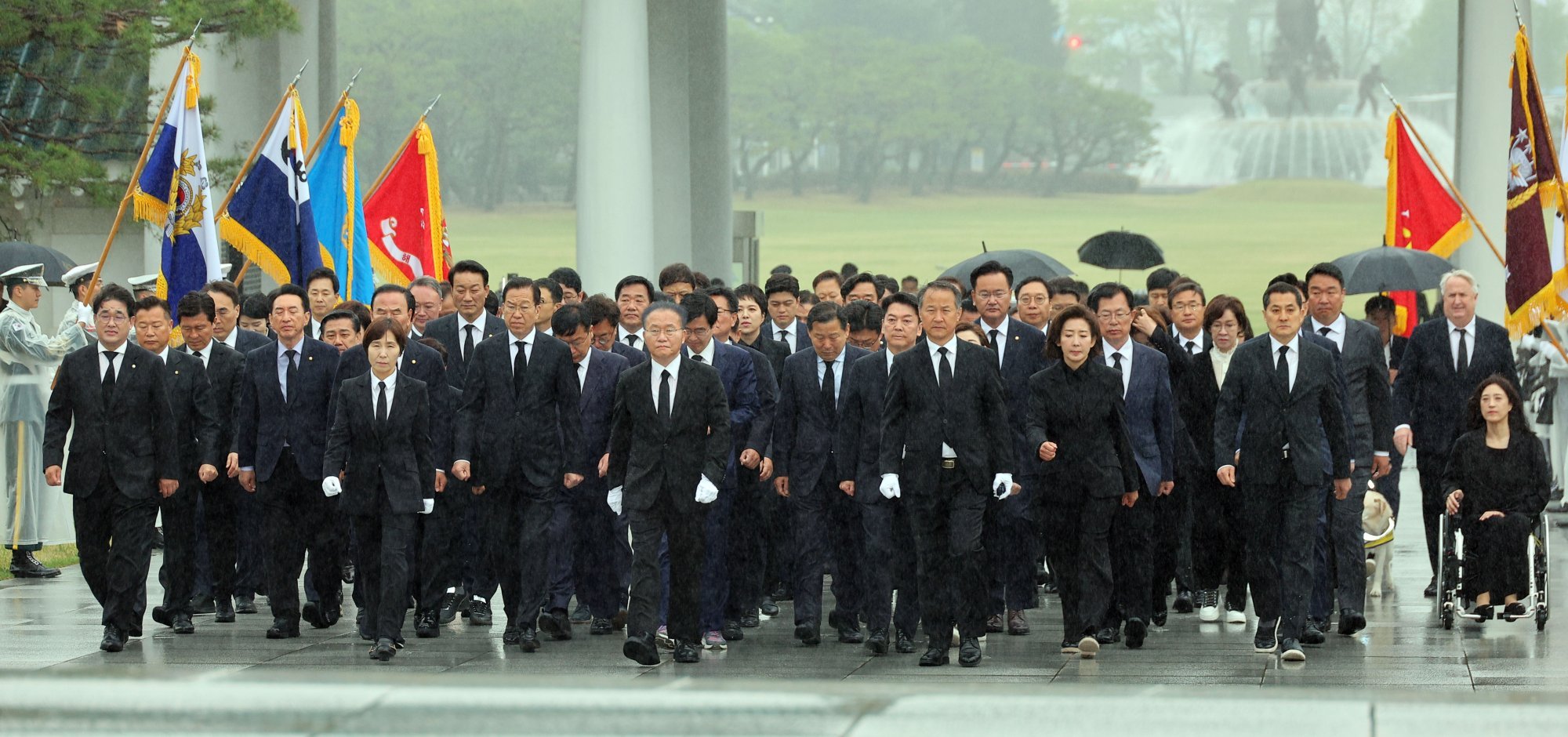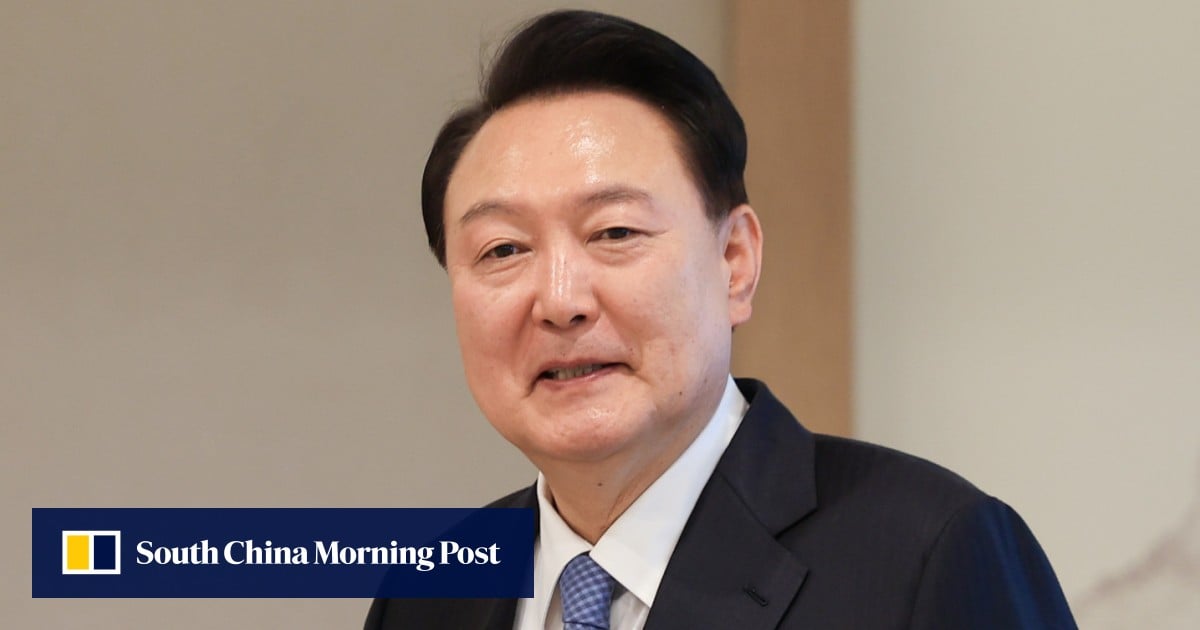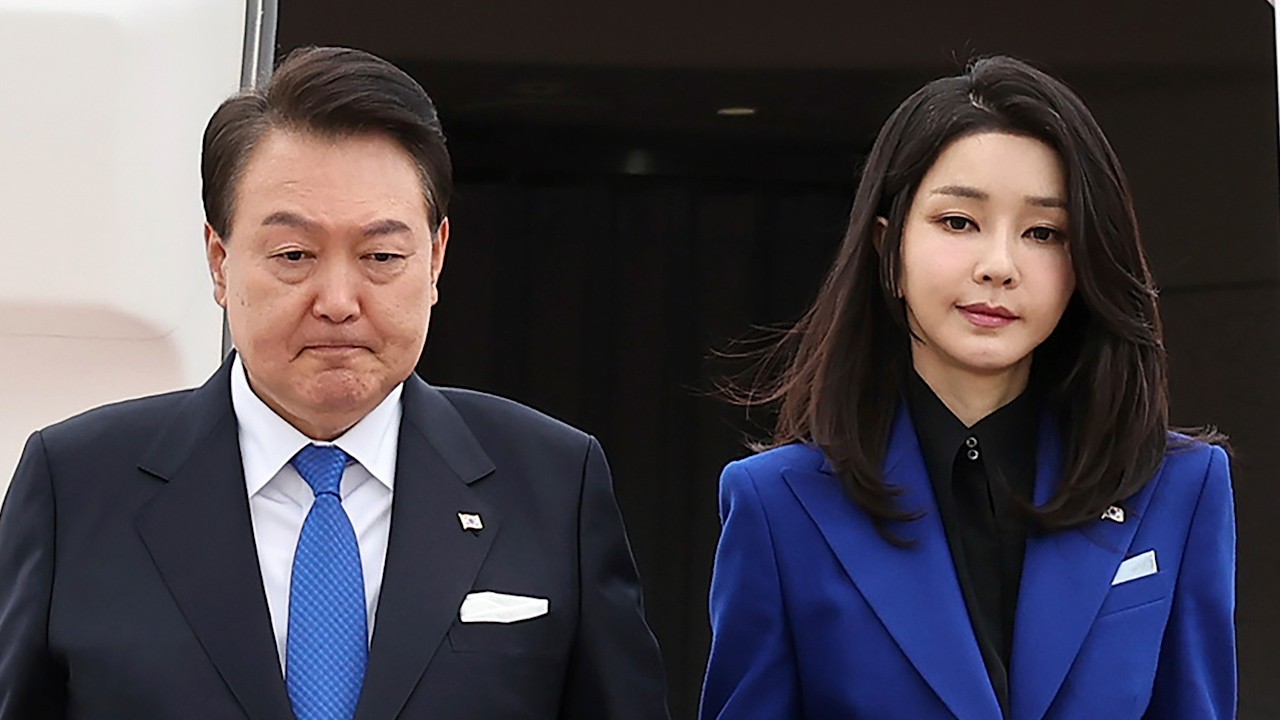He insisted his administration had done its best to “set the right direction” and implement “many good policies”, but said it had fallen short of making enough changes to satisfy expectations for better living standards. Off camera, Yoon apparently wrapped up the cabinet meeting with an apology for this failure and called for better government communication, a senior official of the presidential office later told journalists.
“Through the remarks, he made it clear that he won’t budge an inch from his stubborn leadership style and policies,” Jung Suk-koo, a former executive editor of the centre-left Hankyoreh daily, told This Week in Asia.
Yoon’s ruling People Power Party won 108 of the National Assembly’s 300 seats at the April 10 election, narrowly preventing opposition parties from obtaining the two-thirds majority required to seek his impeachment.

As a result of the electoral drubbing, Yoon will be the first South Korean president to face a hostile parliament throughout his entire five-year term, which is set to end in May 2027.
His past two years at the helm have been marked by gridlock in the opposition-controlled parliament, with critics noting that Yoon – a political novice who spent decades as a prosecutor before winning the presidency – had made little effort to compromise with opponents so he can push through what he characterises as pro-market labour, pension and education reforms.
His executive orders have included ones cutting real estate and corporate taxes, granting the justice ministry authority to screen candidates for personnel appointments, and allowing the home ministry to tighten control over police.
Yoon’s detractors say his aim is to create a “country of prosecutors”, as he fills key government posts with those who share his professional background.
Lee Jun-han, a political-science professor at Incheon National University, said Yoon had refused to hold himself responsible for the election loss – even though parliamentary polls are widely seen in South Korea as a midterm referendum on the president’s job performance.
Again, he held to this one-way communication method
He warned of “extreme confrontations between the ruling and opposition parties” that are likely to drown out any policy discussions “at this critical juncture”.
Following its landslide win, the opposition camp has moved to introduce a series of bills to parliament to open special investigations into abuse of power and corruption allegations under Yoon.
The president has been criticised for his quasi-authoritarian style of communication, only making remarks through official statements or at cabinet meetings without taking questions from the media.
“Again, he held to this one-way communication method” in his first post-election remarks, said Kim Seo-joong, a media and communications professor at Sungkonhoe University in Seoul, pointing to how Yoon had avoided speaking with journalists and instead passed comment on the polls at a televised cabinet meeting.
South Korea’s ‘fake news’ clampdown has ‘chilling effect’ on free press: critics
South Korea’s ‘fake news’ clampdown has ‘chilling effect’ on free press: critics
All eyes will now be on an expected cabinet reshuffle, including for the posts of prime minister and chief of the presidential secretariat, to accommodate the opposition’s calls to diversify his prosecutor-heavy team of government ministers.


